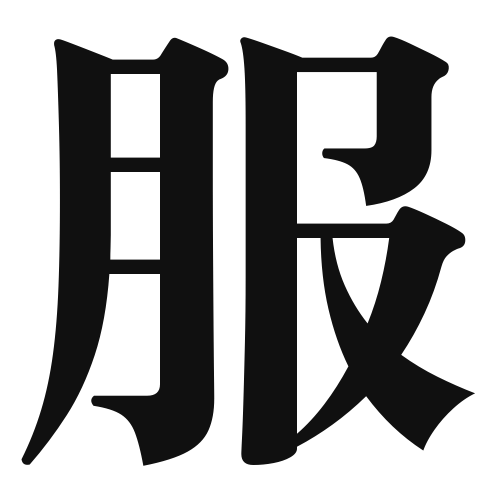1. Overview of Meaning
The kanji “服” (fuku) means “clothes” or “garment.” It refers to items worn on the body, including various types of clothing such as shirts, pants, dresses, and outerwear.
2. Formation and Radicals
The kanji “服” is a compound character that combines elements to convey its meaning. It is made up of the radical 衣 (which represents clothing) and the phonetic component 福 (fuku), which means “good fortune.” This combination suggests the idea of clothing that brings good fortune.
3. Examples of Usage
Common words and phrases that include the kanji “服” are:
- 衣服 (ihuku) – clothing
- 服装 (fukusou) – attire or outfit
- 制服 (seifuku) – uniform
In everyday conversation, you might hear:
「今日は新しい服を買いました。」 (Kyou wa atarashii fuku o kaimashita.) – “I bought new clothes today.”
4. Synonyms and Antonyms
Similar kanji with related meanings include:
- 衣 (koromo) – a more classical term for clothing, often used in historical or poetic contexts.
- 装 (sou) – which refers to dressing or adornment, often used in the context of fashion.
Antonyms or contrasting terms include:
- 裸 (hadaka) – meaning “naked” or “bare,” which is the opposite of wearing clothes.
5. Cultural and Historical Background
The kanji “服” is deeply rooted in Japanese culture, where clothing is not just a necessity but also a form of expression. Traditional garments like kimono are significant in cultural ceremonies and festivals.
There are also proverbs and idiomatic expressions related to clothing, such as:
- 「服を着る」 (fuku o kiru) – literally “to wear clothes,” often used to signify being prepared or ready for something.
Overall, “服” represents not only physical garments but also cultural identity and personal expression in Japan.
